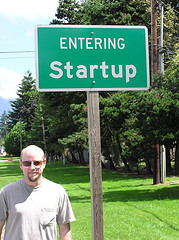At times like these, when I experience internet problems, I am inspired to comment on the state of Telecommunication Companies and their application of technology over time. And how useful is it?
Some quick observations:
-Vodafone Australia phone support attempts to resolve customers problems without having a staff person speak to them. The way in which this process has been established means that it is actually incredibly difficult to speak to a person, when the problem “category” you are experiencing is in their system, but the actual problem you have, is not, or requires you to speak to a person.
-Vodafone New Zealand has a person answering the phone. They resolve issues much more quickly.
-Telstra Bigpond Australia efficiently answers the phone, however today calling technical support I find myself talking to a machine. The voice recognition machine asks me what my type of internet is. Once I’ve advised, the voice then asks me, rhetorically whether I’ve been having problems with my internet or e-mail today. And if so, the issue has been identified and is being worked on. And, I am told, they don’t know when it will be fixed.
This system works great, to a certain extent. To then pursue this further, ie, to enquire as to the current status, the system fails on me. It goes through a very well thought out, yet entirely useless, process of determining what my problem is. When all I was trying to do was find out what the latest situation was.
-TelstraClear New Zealand, prefers to keep people waiting on hold for a long period of time. This exacerbates the issue when the internet stops working and one can only but sit there and wonder when it will be resolved, rather than making any concrete progress. TelstraClear did have a great feature which I used to use, which allowed you to leave a message so someone could call you back. I found this very reliable.
-To my most recent knowledge, all these companies are now allowing online payment, and they bill online too.
You can check your current balance online, even change plans online, these things are very handy. Many of the web based services they offer do add to the experience.
However, I would recommend they all consider doing some research into how people use and benefit from this technology. For example, all people I have spoken to about the Vodafone Australia automated phone process, do not like it. In fact, unless you just want to know what your balance is on your account, I think it fails in many respects. It doesn’t allow you to easily speak to a human, when you have something outside the square box of the system, you need to enquire about.
This has personally caused me a lot of frustration.
Technology provides us all with many benefits, but big companies need to spend more time on planning these systems. As it is not the technology that makes it work well, it’s the application and design of that technology that will save money, and customers’ time.
